- Austausch & Vernetzung
- Wissen & Lernen
- Advocacy
- Unsere Themen
Der Bundesrat hat seine künftige Strategie zur internationalen Zusammenarbeit (IZA-Botschaft) in die Vernehmlassung gegeben. Die Debatte wird sich politisch hauptsächlich rund um die vorgesehenen finanziellen Mittel der Jahre 2025-2028 drehen.

Am 20. Juni 2023 hat der Bundesrat seine künftige Strategie der internationalen Zusammenarbeit in die Vernehmlassung geschickt. Mit dieser sogenannten Botschaft der internationalen Zusammenarbeit 2025-2028 (IZA-Botschaft) muss der Bundesrat angesichts der verschiedenen internationalen Krisen sein globales Engagement positionieren. Klar ist: Kriege und der mögliche Niedergang des internationalen Rechtssystems, Klimaverschlechterung und der dramatische Rückgang der Biodiversität, wirtschaftliche Instabilität, wachsende soziale Not und Gesundheitskrisen verlangen ein starkes internationales Engagement der Schweiz
Das Netzwerk Medicus Mundi Schweiz beteiligt sich an der Analyse der Botschaft und hat bereits zusammen mit einigen Mitgliedern einige Kernpunkte herausgearbeitet, welche die Stärken, aber auch die Schwächen des bundesrätlichen Vorschlages beinhalten.
Die Vernehmlassungsversion zeichnet sich grundsätzlich durch Kontinuität aus. Das ist gut so: Die internationale Zusammenarbeit muss nicht neu erfunden werden, gerade angesichts der verschiedenen Krisen. Im Vergleich zu vielen anderen staatlichen Entwicklungsorganisationen werden die Aktivitäten insbesondere der Direktion für Entwicklung und Zusammenarbeit (DEZA) nicht eingedampft – das ist an sich schon ein gutes Zeichen. Dass die künftige Botschaft einen neuen Schwerpunkt Gesundheit setzt, ist erfreulich und folgt dem Willen des Nationalrates, der in der Frühlingssession eine entsprechende Motion von Elisabeth Schneider-Schneiter als Erstrat deutlich angenommen hat.
Die Botschaft wird insbesondere darauf zu prüfen sein, ob sie es schafft, Antworten auf den verstärkten internationalen Druck auf grundlegende Rechte wie die sexuellen und reproduktiven Rechte zu geben. Schaffen es Länder wie die Schweiz nicht, hier gegenzusteuern, drohen Rückschritte etwa in der Bekämpfung von HIV/Aids oder bei der Mütter- und Kindersterblichkeit. Weiter muss die Botschaft in der Lage sein, den berechtigten Ansprüchen verschiedener Regierung im südlichen Afrika entgegenzukommen, vermehrt in den Aufbau lokaler Kapazitäten zu investieren, damit etwa medizinische Güter lokal produziert werden können. Oder anders: Die Botschaft muss den Forderungen nach Dekolonialisierung gerecht werden
Die politische Debatte im kommenden Jahr im Parlament wird sich aber nicht um diese strategischen Inhalte drehen, sondern einzig darum, wie viele finanzielle Ressourcen die Schweiz für die globale Solidarität zur Verfügung stellt. In dem der Bundesrat zwar die Gesamtsumme gegenüber der laufenden Periode nur knapp erhöht, gleichzeitig einen Teil der humanitären Hilfe und des Aufbaus der Ukraine in die IZA-Budgets rechnet, bleiben faktisch weniger Mittel für den globalen Süden. Die reiche Schweiz kann das besser. Sie sollte sich endlich am 0.7%-Ziel der UNO orientieren. Wir werden sehen, ob in einem Jahr das neugewählte Parlament die entsprechende Weitsichtigkeit zeigt.
Martin Leschhorn Strebel
Netzwerk Medicus Mundi Schweiz
E-Mail

"Interessierte Kreise können sich in den nächsten drei Monaten zum Entwurf der neuen Strategie der internationalen Zusammenarbeit (IZA) äussern. Die öffentliche Konsultation ist eine wichtige Etappe im Hinblick auf die geplante Verabschiedung der IZA-Strategie 2025-28 durch den Bundesrat im Frühjahr 2024. Für die IZA-Strategie sind 11,45 Milliarden Franken vorgesehen. Mit der internationalen Zusammenarbeit trägt die Schweiz zu Freiheit, Sicherheit und Wohlstand in der Schweiz und in der Welt bei. Sie zeigt sich ausserdem solidarisch angesichts der globalen Herausforderungen."
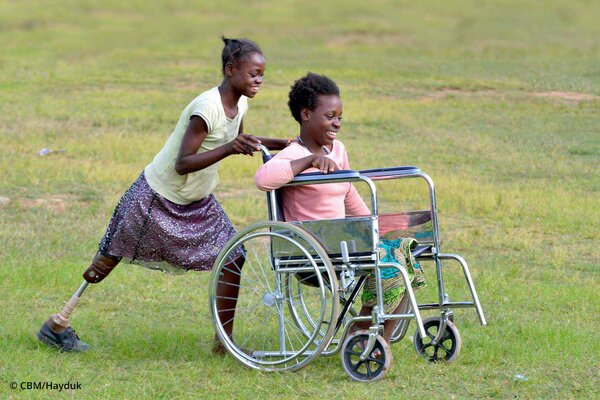
Positionspapier zu einer schweizerischen internationalen Zusammenarbeit, die niemanden mehr zurücklässt
"Die Schweiz verabschiedet alle vier Jahre eine Strategie, in der sie die Ziele und Schwerpunkte ihrer internationalen Zusammenarbeit festhält. Nun ist es wieder so weit: Der Entwurf der «IZA-Strategie 2025 – 2028» wurde am 20. Juni 2023 in die öffentliche Vernehmlassung gegeben. Damit ist die politische Debatte darüber eröffnet, wie es mit der internationalen Zusammenarbeit der Schweiz weitergehen soll. Das Swiss Disability and Development Consortium (SDDC) – bestehend aus CBM Schweiz, FAIRMED, Handicap International und der International Disability Alliance (IDA) – fordert, dass dem Prinzip «leave no one behind» endlich die nötige Priorität zu Teil wird. Dies, indem in der neuen IZA-Strategie die Inklusion von Menschen mit Behinderungen explizit verankert wird, die DEZA dies als transversales Thema vorantreibt und die Umsetzung der UNO Behindertenrechtskonvention (BRK) ganz oben auf ihre Prioritätenliste setzt."

Martin Leschhorn, Geschäftsführer Medicus Mundi Schweiz und Laura Ebneter, Fachverantwortliche Internationale Zusammenarbeit bei Allianz Sud im Interview
"Laut dem jüngsten Entwurf zur Strategie der internationalen Zusammenarbeit der Schweiz 2025-2028 soll die Ukraine besondere Unterstützung erhalten. Die Etats für andere Länder werden nicht erhöht. (...) Von den insgesamt 11,45 Milliarden Franken für die gesamten vier Jahre, die der Bundesrat für die internationale Zusammenarbeit ausgeben will, sind 1,5 Milliarden Franken für die Ukraine reserviert – „für humanitäre Projekte, die Minenräumung, Energieversorgung und Rückkehr der Vertriebenen“, erklärte Patricia Danzi, Chefin der Direktion für Entwicklung und Zusammenarbeit (Deza), bei einer Pressekonferenz. (...) „Das Geld für den Wiederaufbau der Ukraine muss anders bereitgestellt werden, etwa durch einen speziellen Fonds, der bestenfalls auch mit mehr als 1,5 Milliarden bestückt wird“, sagt Leschhorn."
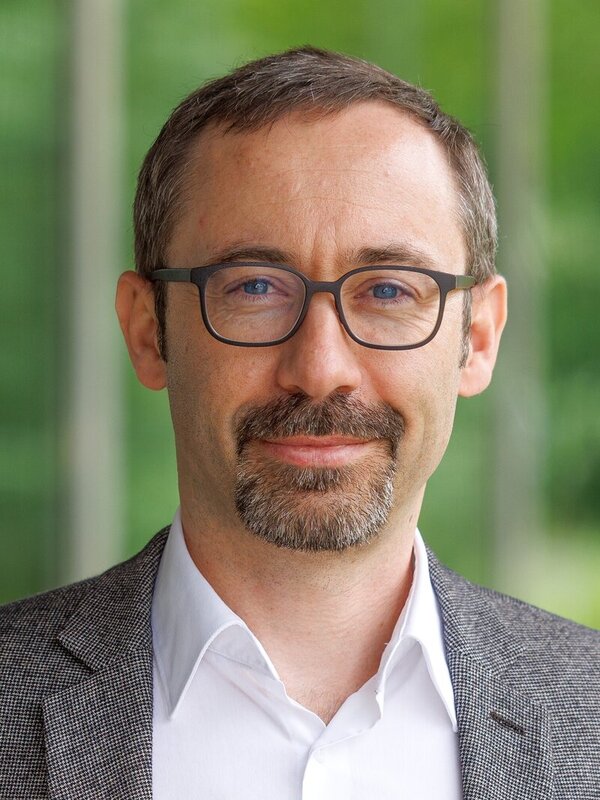
"An ihrer jährlichen Generalversammlung wählten die Mitglieder der Swiss Malaria Group Professor Manuel Hetzel zum neuen Präsidenten. Hetzel ist Forschungsgruppenleiter am Schweizerischen Tropen- und Public Health-Institut (Swiss TPH) und Professor für Epidemiologie an der Universität Basel. Er beschäftigt sich in dieser Tätigkeit hauptsächlich mit Malaria-Kontrollmassnahmen. Er folgt auf Professor Christian Lengeler, der nach sechs Jahren als Präsident und insgesamt über sechzehn Jahren bei der Swiss Malaria Group kürzertritt."
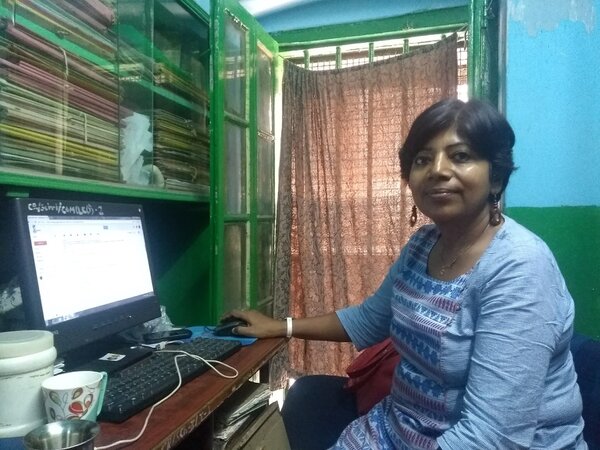
"Calcutta Rescue students have just scored their best-ever results with 30 out of 31 candidates passing the Madhyamik (Year 10) exams, and 13 out of 14 passing the Year 12 exams. The results are a tribute to the skill and huge dedication of CR’s head of education Ananya who has radically reworked the curriculum in recent years and to her team of teachers who have been taking part in a two-year training course organised by UK charity the Helga Todd Foundation."
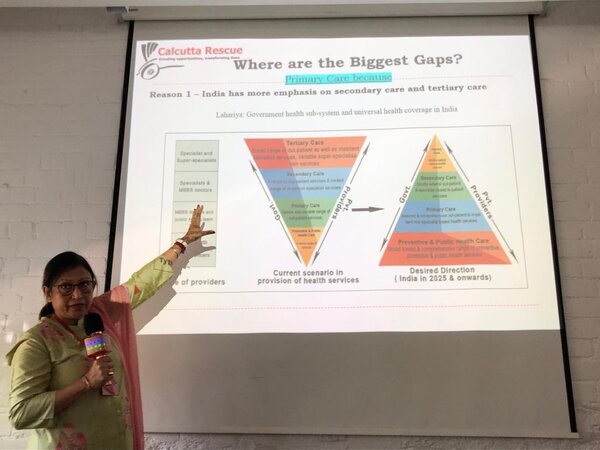
"An increased focus on primary care, health promotion and disease prevention were the centrepieces of a new medical strategy for the charity which was unveiled at its International Meeting in Bristol, UK, in May. The strategy is the result of five months’ work by a 10-strong team which included volunteer doctors and researchers from Europe, as well as key staff in Kolkata. Introducing the strategy, charity CEO, Jaydeep, said: “We can’t do everything, we have limited resources, where do we want to focus our efforts and resources?”
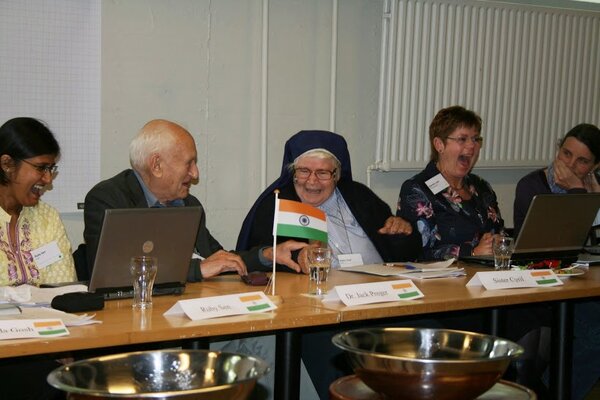
We were plunged into mourning this month with the death of one of the world’s most inspiring educationalists, Sister Cyril Mooney, who was a leading light at our organisation for 22 years.
"Sister Cyril, passed away in Kolkata on Saturday, June 24, aged 86, and our projects closed early on the day of her funeral, three days later, so that more than 100 staff could attend her funeral in St Thomas Church in Middleton Row, near where Dr Jack, CR’s founder, established his first clinic. She first got involved with Calcutta Rescue in 1996 when she was head of Loreto Day School in Sealdah. Hugely impressed by our work, which aligned with her own deep commitment to serve the poor, she offered to let it open a health clinic for people living on the streets and slums in the grounds of the school."
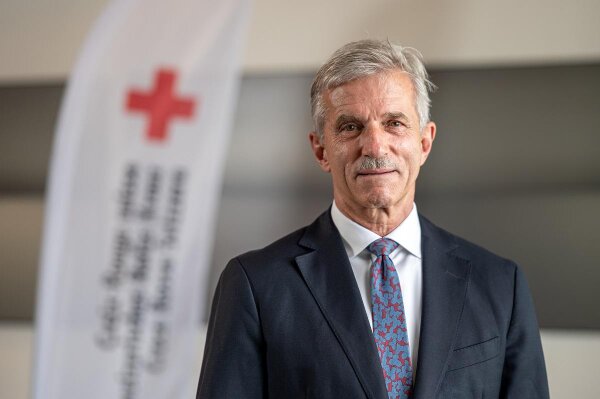
Medienmitteilung
"Die Delegierten der Rotkreuzversammlung haben Thomas Zeltner zum neuen Präsidenten des Schweizerischen Roten Kreuzes (SRK) gewählt. Der ehemalige, langjährige Direktor des Bundesamtes für Gesundheit will bestehende Herausforderungen beim SRK aktiv angehen. Die Zusammensetzung des Rotkreuzrates wird in den kommenden Monaten einer breiten Konsultation innerhalb der Organisation unterzogen. Mit Prof. Dr. Thomas Zeltner übernimmt eine erfahrene, inner- und ausserhalb des SRK hervorragend vernetzte Persönlichkeit die Leitung der grössten humanitären Organisation der Schweiz."
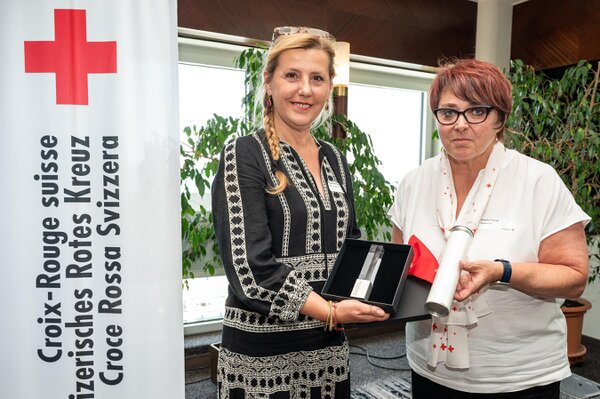
"Für ihr Engagement für Frauen auf der Flucht ehrt das Schweizerische Rote Kreuz die «SAO Association» mit dem Rotkreuzpreis 2023. Der Berner Verein «Mazay» gewinnt den Förderpreis. Im Verein engagieren sich Freiwillige für die soziale Integration von Asylsuchenden und Geflüchteten. Die «SAO Association» unterstützt seit 2016 Frauen auf der Flucht bei ihrer Ankunft in Griechenland. Frauen sind auf der Flucht besonders verletzlich. Die Organisation hilft ihnen, sich im komplexen Asyl- und Migrationssystem zurechtzufinden."
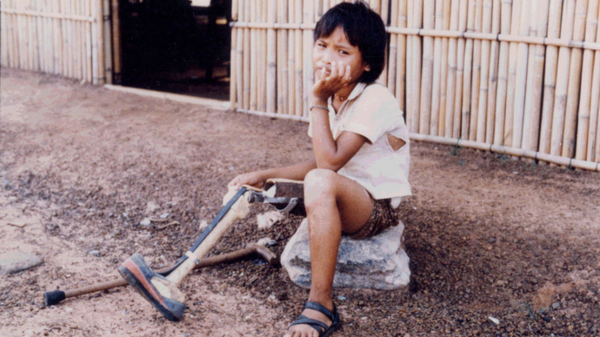
"Seit unserer Gründung im Jahr 1982 setzen wir uns für Menschen mit Behinderungen und besonderen Schutzbedürfnissen sowie für Menschen ein, die weltweit von humanitären Krisen betroffen sind. Anlässlich unseres 40-Jahr-Jubiläums möchten wir auf einige Momente zurückblicken, in denen wir Nothilfe geleistet und die unsere Geschichte geprägt haben. Unsere Geschichte begann an der Grenze zwischen Kambodscha und Thailand, im Flüchtlingslager Kao-I-Dang, in dem Tausende Geflüchtete lebten. Die Ungerechtigkeit, die die Opfer von Antipersonenminen – fast ausschliesslich Zivilist:innen – erlebten, war in den Augen von zwei jungen französischen Ärzte eklatant."
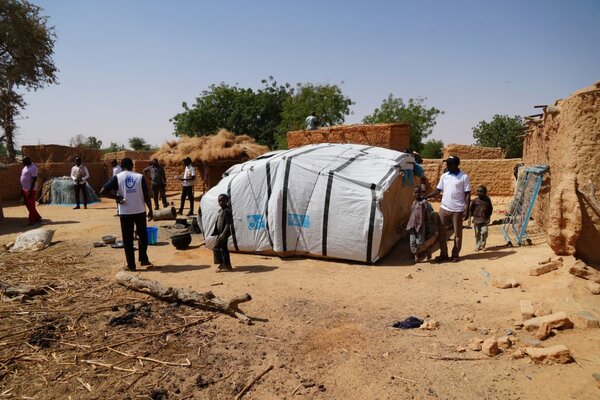
"Extreme Wetterereignisse wie Starkregen und Hagel bedrohen Einwohner:innen wie Ali, der 2021 sein Haus und seine Ernte verlor. Erfahren Sie mehr über unser Engagement, die negativen Auswirkungen des Klimawandels auf schutzbedürftige und marginalisierte Bevölkerungsgruppen weltweit zu verringern."
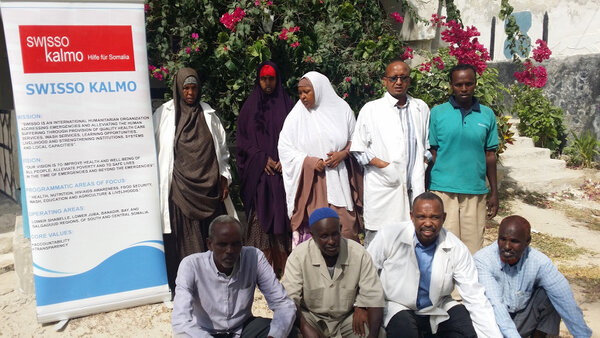
Aus einem Vortrag von Bashir Gobdon am Café de la paix am 27. März 2023 in Zürich
"Etwa 15,9 Millionen Menschen leben in Somalia, davon sind 3 Millionen Binnenvertriebene. 650‘000 Menschen sind aus Somalia geflohen. Die meisten Somalierinnen und Somalier sind in Nachbarländer, nach Kenia, dem Jemen und Äthiopien geflüchtet nur wenige nach Europa. Anfangs 2023 zählte man in der Schweiz 1‘783 somalische Flüchtlinge die vorläufig aufgenommen wurden. Aktuell sind rund 6,7 Millionen Somalierinnen und Somalier vom Hunger bedroht. Bei der letzten Hungersnot in Somalia in den Jahren 2011/12 starben mehr als eine Viertelmillion Menschen. Die Versorgung der vielen Menschen, die vom Krieg und der Dürre an die Ränder der Städte geflüchtet sind, ist sehr schwierig. Diese Flüchtlingslager wurden kürzlich auch durch Überschwemmungen heimgesucht. Durch die Corona Krise und durch den Krieg in der Ukraine haben die Nöte Somalias bei der UNO und bei Hilfsorganisationen weniger Priorität."
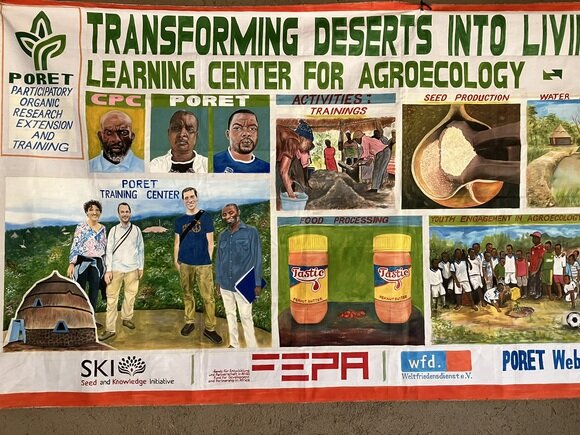
"2023 steht noch immer unter dem Zeichen des Jubiläums für fepa und wir feiern. Sie sind dazu ganz herzlich eingeladen: am 9. September mit dem AfrikaKomitee Basel und am 29. September im kHaus Basel. Lassen Sie sich von Afrika mit seinen Klängen und Tänzen betören! Im neuesten Mitteilungsblatt haben wir wieder auf junge Autor:innen aus Simbabwe gesetzt: Sie berichten über Gerechtigkeit und wie weit diese greift, von Klimagerechtigkeit über Geschlechtergerechtigkeit bis hin zur Rolle der Musik im Dialog über Gerechtigkeit. Wir berichten auch kurz über Aktuelles aus den Kontexten, in denen unsere Projektpartner:innen arbeiten:. Wir sprechen von der Gold-Mafia und der Abstimmung zum Klimaschutz in der Schweiz, von Morden an Whistleblowern und vielem mehr."
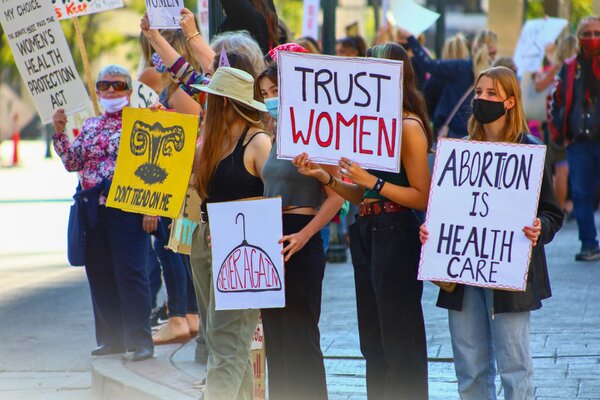
SEXUELLE GESUNDHEIT SCHWEIZ befürwortet Postulate zur Evaluation der Fristenregelung sowie der Versorgung in der Praxis
"Gut 20 Jahre nach Einführung der Fristenregelung gibt es noch immer Hürden beim Zugang zum Schwangerschaftsabbruch, wodurch die Selbstbestimmung der Betroffenen selbst im Rahmen der Fristenregelung in Frage gestellt ist. SEXUELLE GESUNDHEIT SCHWEIZ (SGCH) begrüsst es, dass in der Sommersession je zwei Postulate von Nationalrätinnen verschiedener Parteien zu diesem Thema eingereicht wurden. Die Postulate fordern eine Evaluation der gesetzlichen Regelung sowie einen Bericht über den Zugang zum Schwangerschaftsabbruch und bestehende Hürden."

"Das Monitoring macht quantitative Angaben zu ausgewählten Themen der sexuellen Gesundheit. Es dokumentiert Dienstleistungen der anerkannten Schwangerschaftsberatungsstellen und Fachstellen für sexuelle Gesundheit. Themen sind: Schwangerschaft, Verhütung, STI und Sexualaufklärung. Interessantes aus dem Bericht: Die Stellen, die ein «Peer-to-Peer»-Angebot im schulischen und ausserschulischen Bereich haben, sind mit 17% stark angestiegen und wieder auf dem gleichen Niveau wie 2017 [2020: 8%]."
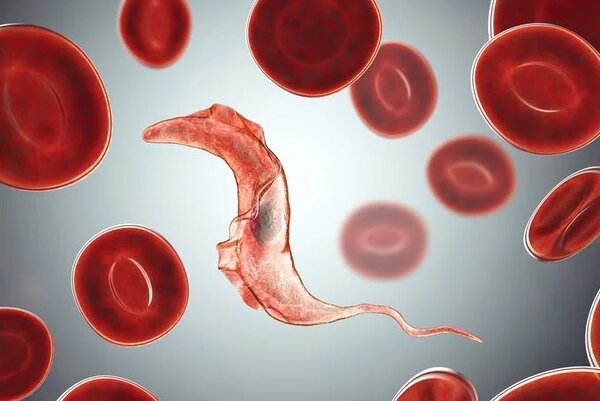
Medienmitteilung: Ein Konsortium bestehend aus Novartis, dem Schweizerischen Tropen- und Public Health-Institut (Swiss TPH) und der Universität Glasgow hat eine neue Klasse von Wirkstoffen entdeckt, die sogenannten Cyanotriazole (CT).
"Wissenschaftler*innen haben eine neue Klasse von Wirkstoffen entdeckt, welche gezielt Trypanosomen abtöten, die Erreger der Chagas-Krankheit und der afrikanischen Schlafkrankheit. Die Ergebnisse, die gestern in der Fachzeitschrift «Science» veröffentlicht wurden, zeigen, dass die Wirkstoffe keine Toxizität für menschliche Zellen aufweisen, was Hoffnung auf die Entwicklung neuer und verbesserter Behandlungsmethoden für vernachlässigte Tropenkrankheiten weckt. Die Chagas-Krankheit und die afrikanische Schlafkrankheit bedrohen weltweit Millionen von Menschen, insbesondere in Lateinamerika und Afrika südlich der Sahara. Diese vernachlässigten Tropenkrankheiten treffen vor allem arme Bevölkerungsgruppen und können unbehandelt tödlich verlaufen. Die gegenwärtige Therapie der Chagas-Krankheit erfordert eine langwierige Behandlung und ist mit Nebenwirkungen verbunden, so dass sie oft frühzeitig abgebrochen wird."
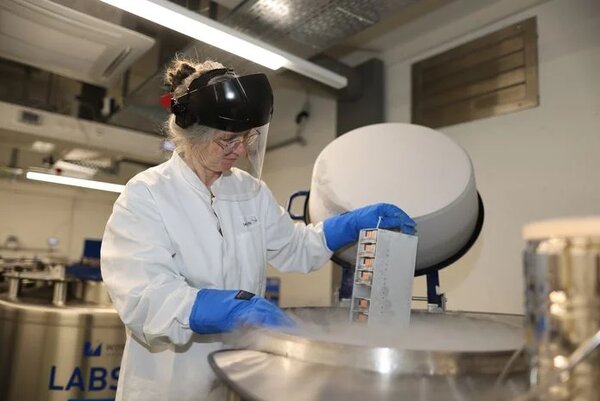
Forschende, Praxis, Verwaltung und Politik sind sich jedoch einig: Wir haben in der Schweiz grosse Datenlücken im Gesundheitsbereich.
"Wir leben in einer Zeit, in der Public-Health-Innovationen möglicherweise mehr zu Lebensverlängerung und Lebensqualität beitragen als medizinische Innovationen. Von dieser Idee lässt sich SAMW-Vorstandsmitglied Prof. Nicole Probst-Hensch, Professorin am Swiss Tropical and Public Health Institute (Swiss TPH), leiten. Im Schwerpunkt, der in Zusammenarbeit mit einem breit aufgestellten Team entstanden ist, zeigt sie auf, weshalb in der Schweiz finanzielle Ressourcen für Public-Health-Forschung und grosse Langzeitstudien mit Teilnehmenden aus der allgemeinen Bevölkerung nötig sind."

"L’Institut de santé globale de l’Université de Genève propose une formation en cours d’emploi, la Maîtrise d’études avancées en Santé publique (MAS-SP), qui pourrait être d’intérêt pour les professionnels de la santé. Ce master, pionnier en Suisse depuis sa première édition en 1990 est une formation en cours d’emploi, qui se déroule en français, sur 3 ans. Il est destiné aux professionnels de la santé et des secteurs connexes souhaitant devenir experts et leaders en santé publique et permet d’acquérir des connaissances et des compétences dans des domaines multiples. À ce jour, cette formation a permis de diplômer 290 experts en santé publique, aux profils professionnels très diversifiés, provenant de toute la Suisse, d’Europe ou d’autres continents. Le délai d’inscription au MAS en santé publique cette année a été prolongé jusqu’à fin août 2023. Pour plus de renseignements, nous vous prions de bien vouloir consulter le site internet : https://www.unige.ch/formcont/cours/mas-sante-publique ou adresser un courriel à Madame Manuela La Greca : info-mas-sp@unige.ch
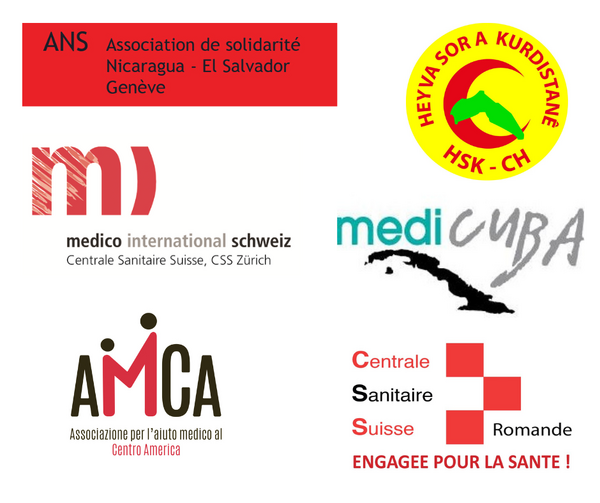
Medienmitteilung zur Petition "Unblock Solidarity" von Centrale Sanitaire Suisse Romande, mediCuba-Suisse, medico international schweiz, Associazione per l'Aiuto Medico al Centro America (AMCA), Association de solidarité Nicaragua-El Salvador Genève, Vereinigung Schweiz Cuba und der Heyva Sor a Kurdistane - Schweiz
"Schweizer Banken behindern die Arbeit von Organisationen der Entwicklungszusammenarbeit und der humanitären Hilfe. Unter dem Vorwand von Reputationsrisiken blockieren Schweizer Banken internationale und nationale Banküberweisungen, sobald bestimmte Länder (u.a. Kuba, Kurdistan, Irak, Syrien) im Betreff vorkommen. So verhindern sie nicht nur direkte Hilfslieferungen in diese Länder, sondern schränken auch die Spendeneinnahmen und das Alltagsgeschäft von Entwicklungs- und Solidaritätsorganisationen in der Schweiz ein. (...) Ob es sich um (private oder institutionelle) Spenden, Rechnungszahlungen oder Mitgliedsbeiträge handelt, mehrere Banken blockieren Transaktionen, auch wenn die Gelder nicht direkt in die von Sanktionen betroffenen Länder fliessen, sondern für die Arbeit der Organisation in der Schweiz bestimmt sind."
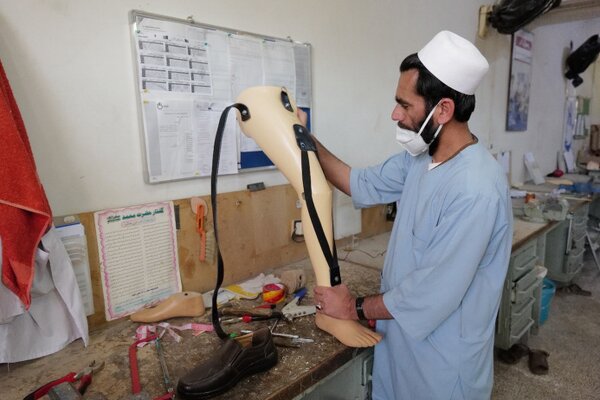
Rania Lebad, Handicap International, über die Bedeutung der Resolution für die Gesundheitssysteme
Die Weltgesundheitsversammlung, die im Mai in Genf tagte, erzielte ein Ergebnis, das für Menschen, die Zugang zu Rehabilitationsmassnahmen benötigen und insbesondere für Randgruppen und Menschen mit Behinderungen von grosser Bedeutung ist. Die Resolution, die auf eine Stärkung der Rehabilitationsdienste in den Gesundheitssystemen abzielt, wurde im Konsens verabschiedet, was einen wichtigen Fortschritt bei der Anerkennung der Bedeutung von Rehabilitation für Gesundheit und Wohlergehen aller Menschen darstellt.
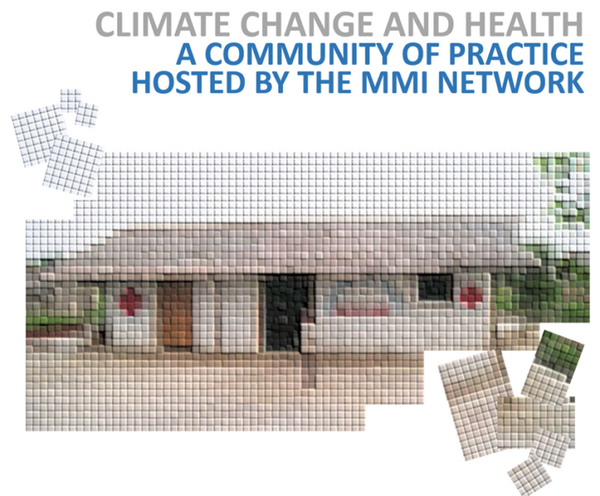
Proposed next meeting: Thursday, 27 July 2023, 15.00 CEST
"We herewith invite you to join an emerging civil society community of practice hosted by the Medicus Mundi International Network to explore, in a mixed team within and beyond our membership, the role of international health cooperation and global health advocacy in climate change and planetary health. With the community, we want to create a space of sharing experiences, knowledge and reflection between and explore what is to be done among organizations and people that are dealing with these topics: NGOs, academia, health institutions, and a broad range of social movements and civil society activists. While we want to use a perspective of global solidarity and decolonization, we need to have, in the team, participants with real experiences of what climate change and planetary health means at the place they live and work. If you are interested in being part of this community of practice, please join us."
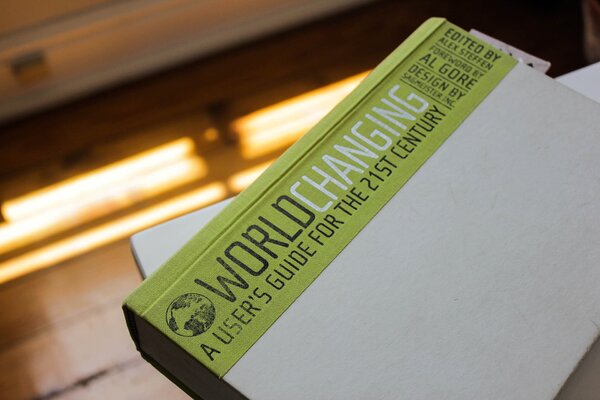
"Every day seems to bring a new headline about a devastating climate event. African countries aren’t spared. A “rain bomb” in South Africa. Flooding in Nigeria. Cyclones battering Mozambique, Malawi, Zimbabwe and Madagascar. Drought in Kenya. These events have enormous health and social effects, among them death, injuries, malnutrition and diseases (infectious and non-communicable). This all puts tremendous pressure on countries’ health systems, both in terms of caring for those affected and because facilities like hospitals and clinics are vulnerable to damage and destruction."

"In 2019, I happened to be visiting Phoenix on a 115-degree day. I had a meeting one afternoon about 10 blocks from the hotel where I was staying downtown. I gamely thought I’d brave the heat and walk to it. How bad could the heat really be? I grew up in California, not the Arctic. I thought I knew heat. I was wrong. After walking three blocks, I felt dizzy. After seven blocks, my heart was pounding. After 10 blocks, I thought I was a goner. That experience led me to spend the next three years researching and reporting a book about the dangers of extreme heat and how rising temperatures are reshaping our world."
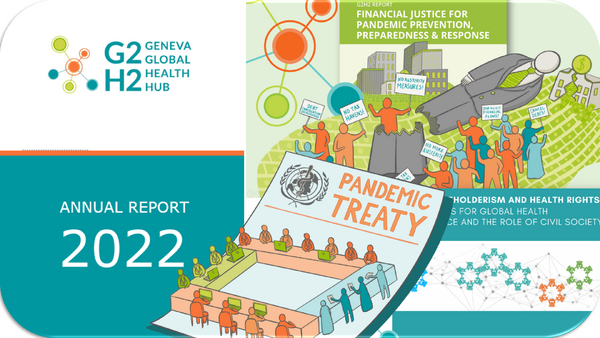
Introduction by Baba Aye and Nicoletta Dentico, G2H2 Co-Presidents
"As the World Health Assembly (WHA) marking the 75th year of the World Health Organization has just come to its end, it seems hard for us as civil society to celebrate developments in the way global public health is being addressed after the three years of the pandemic that shook the world. A sense of animated agitation can be perceived within the international health arena. Many more people attend the WHA, which may be regarded a positive indicator of attention to the essential domain for people’s lives and dignity that health is. Events are organized in numbers that are impossible to follow. New initiatives and entities are mushrooming all over to tackle health challenges that remain on the rise, well beyond the past pandemic shock. Yet, all this fervent activism does not really seem to lead to any sense of greater safety for the future of the right to health."
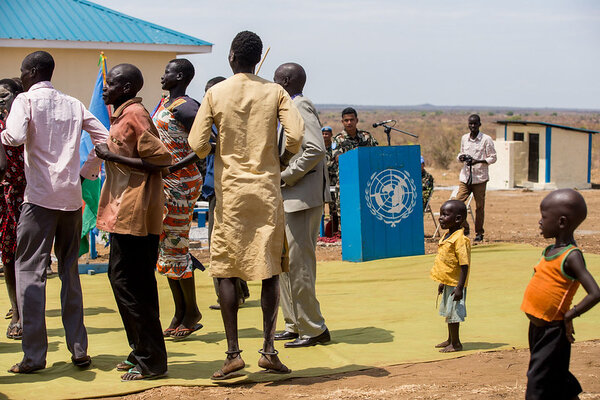
"Three multilateral development banks and the World Health Organization (WHO) announced the launch of an investment platform on Thursday aimed at supporting low and middle-income countries to build their primary healthcare (PHC) services via grants and concessional loans. PHC is widely recognised as the most effective way to improve health and well-being, and the recent World Health Assembly recognised it as the driver of universal health coverage, one of the United Nations Sustainable Development Goals (SDGs)."

"In 1948, with the adoption of the Universal Declaration of Human Rights (UDHR), equity was globally recognised as integral to human wellbeing. In the decades that have followed, advances were made worldwide in health and wellbeing with substantial reductions in extreme poverty and improvements in life expectancy and other health and social outcomes. Unfortunately, this progress coexists with persistent socioeconomic disparities within and between countries. In 2015, all the member states of the UN pledged to “leave no one behind” with the Sustainable Development Goals, furthering their commitments to a fairer world, and ensuring that as socioeconomic advantages of development accrue, those who are poor and marginalised could receive a greater share of the benefits of growth."

In the development sphere, the term ‘fragile’ has generally been used as a pejorative label to represent ‘fragile and conflict-affected states’ with chronic governance challenges.
"Development and global health research have long applied a binary definition of fragility. Within this, countries are either labelled fragile or not. However, the COVID-19 pandemic has thrown this distinction into question. Many settings previously thought of as fragile are now outperforming others.1 The World Bank has seen this binary designation as fundamental to its strategy. Using the Country Policy and Institutional Assessment, the World Bank evaluates performance across domains of economic management, social inclusion, equity and structural policy. Poor performers are included in the ‘fragile situations’ list.2 Most situations so identified are conflict affected."
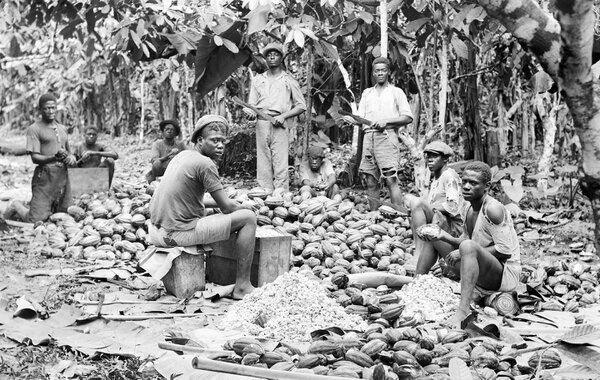
"Global Health is experiencing a moment of reckoning over the field’s legacy and current structuring in a world facing multiple, intersecting challenges to health. While “decolonization” has emerged as the dominant frame to imagine change in the field, what the concept refers to and entails has become increasingly unclear. Despite warnings, the concept is now being used by elite Global North institutions and organization to imagine their reformation. In this article, I attempt to provide clarity to the issue of conceptualizing change in Global Health."
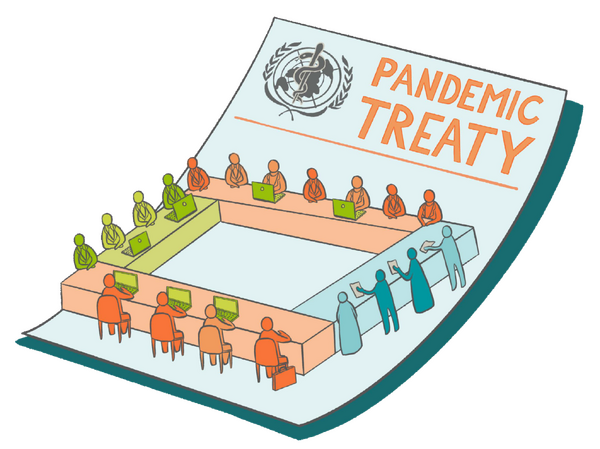
Resumed session of INB5, 12 June 2023; G2H2 statement under agenda item 2
"The INB Bureau's new text proposal clearly reflects the delicate weaving work for bringing Member States together on many diverging elements of the negotiation. However, clear safeguards in the treaty concerning the highly problematic role of the corporate sector, as persistently requested by the Geneva Global Health Hub, remain ignored. The WHO Tobacco Convention is the model to follow, yet we see incomprehensible resistance to setting ground rules to protect the governance of the new instrument from commercial influence. Future negotiations must address this. We regret reading a weakened draft in other fields like human rights or access and benefit sharing, as well as insufficient involvement of Civil Society in pandemic prevention, preparedness and response."

A series of periodic briefings on the state of global reforms for pandemic preparedness and response - Second Issue
"Welcome to the second issue of the Governing Pandemics Snapshot, a publication aiming to provide a concise, periodic overview on the state of efforts to strengthen global pandemic preparedness and response (PPR). This second issue provides updates on negotiations over the WHO Pandemic Accord and parallel talk on amendments to the International Health Regulations. It reexamines the financing of PPR and raises the question of how the ambitious new commitments envisioned for the WHO Pandemic Accord can be financed, especially considering the decrease in government spending on preparedness and insufficient donor pledges. Finally, it provides insights into the thorny question of how “medical countermeasures” might be handled in either accord, where North-South divides persist. In addition, there are questions about who will call the shots on a new global countermeasures platform – the G7, G20, or WHO?"
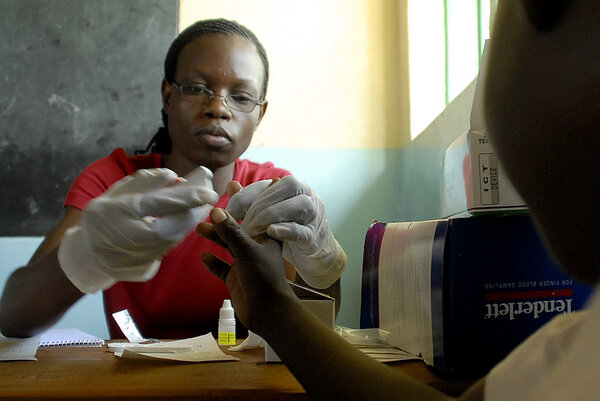
Die aktuelle Fünfjahresstrategie des Fonds, die in diesem Jahr beginnt, befürwortet ausdrücklich die Integration von Diensten zur Vorbeugung, Erkennung und Behandlung von chronischen Krankheiten (NCDs) und unterstützt Tuberkulose-Dienste, die Diabetes und andere Krankheiten behandeln. Dies zum einen, weil Menschen mit HIV und Tuberkulose, unter anderem aufgrund der antiretroviralen Behandlung anfälliger für viele NCDs sind, als der Rest der Bevölkerung. Zum anderen, soll diese Integration den Aufbau widerstandsfähiger und nachhaltiger Gesundheitssysteme stärken. Wenn die entsprechenden Anträge der Länder genehmigt werden, könnte dies ein Wendepunkt sein, da die zu Verfügung gestellten Mittel es den Ländern ermöglichen würden, ihre Gesundheitssysteme neu auszurichten. Mehrere Länder haben bereits die Chance erkannt, die schwächelnden NCD-Dienste auszubauen und gleichzeitig aus isolierten Gesundheitsmassnahmen auszubrechen, die auf Krankheiten ausgerichtet sind, die die meiste Aufmerksamkeit der Geber erhalten.
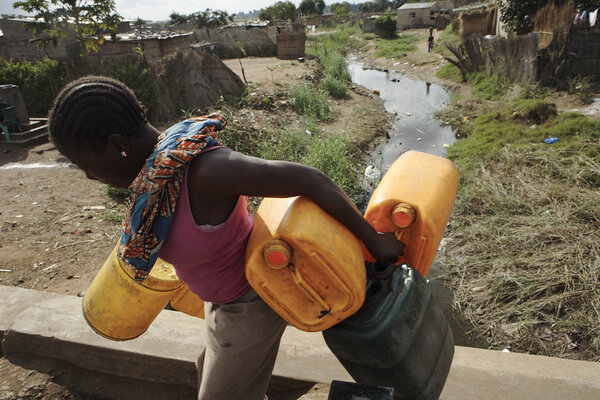
Women and girls responsible for fetching water in 7 out of 10 households without supplies on premises, according to first in-depth analysis of gender inequalities in drinking water, sanitation, and hygiene (WASH) in households
"Globally, women are most likely to be responsible for fetching water for households, while girls are nearly twice as likely as boys to bear the responsibility, and spend more time doing it each day, according to a new report released today by UNICEF and WHO. Progress on household drinking water, sanitation and hygiene (WASH) 2000-2022: Special focus on gender – which provides the first in-depth analysis of gender inequalities in WASH – also notes that women and girls are more likely to feel unsafe using a toilet outside of the home and disproportionately feel the impact of lack of hygiene."
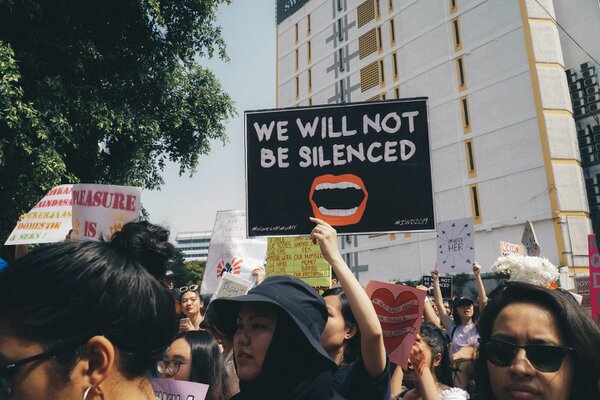
Wide-ranging analysis
"Emboldened anti-abortion advocates, stalled policies on safe abortions, and resistance against reproductive health efforts. That has been the “chilling” impact worldwide, from India to Nigeria, from last year’s U.S. Supreme Court ruling that effectively revoked the constitutional right to abortion."

New project funded by Fondation Botnar
"While they offer the opportunity to speed progress towards the Sustainable Development Goals, digital technologies and artificial intelligence are designed, accessed and used in a context shaped by profound inequalities, both among and within countries. UN leaders have affirmed that “human rights should be at the heart of tech governance”, and high-level policy discussions over the next few years could represent a turning point. Young people and civil society in low- and middle-income countries have had little voice in digital governance, but they must have a role in shaping those discussions, or risk missing the opportunity to establish rights-based digital governance for the future."

By Sara (Meg) Davis, Professor of Digital Health and Rights at University of Warwick and an Associated Researcher at the Geneva Graduate Institute
"At a critical moment in the global digital transformation, with media and world leaders debating whether artificial intelligence (AI) might pose a future existential threat to humans, are we talking enough about the harms already being done in the present? A new thematic report to the UN Human Rights Council from the UN Special Rapporteur on the Right of Everyone to the Highest Attainable Standard of Physical and Mental Health, Dr. Tlaleng Mofokeng, highlights the real-world threats we face in the ongoing spread of digital technologies in global health, some real benefits, and the urgent need for a broader public conversation about human rights and health in the digital age."
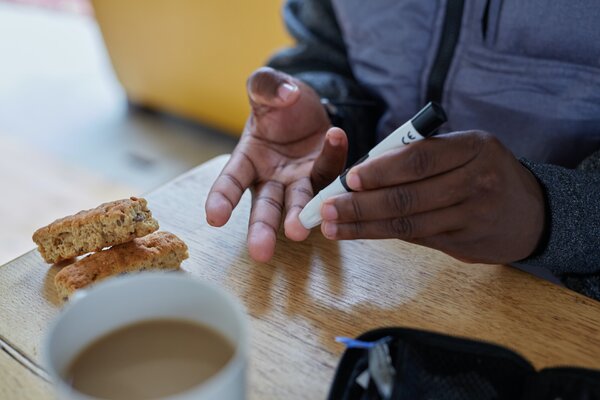
"Diabetes is one of the leading causes of death and disability worldwide, and affects people regardless of country, age group, or sex. Using the most recent evidentiary and analytical framework from the Global Burden of Diseases, Injuries, and Risk Factors Study (GBD), we produced location-specific, age-specific, and sex-specific estimates of diabetes prevalence and burden from 1990 to 2021, the proportion of type 1 and type 2 diabetes in 2021, the proportion of the type 2 diabetes burden attributable to selected risk factors, and projections of diabetes prevalence through 2050."

"In Madagaskar: Für die Arbeit in der Apotheke von drei Gesundheitseinrichtungen (Dispensarien Aina Vao, Mahasoa und Fanantenana) in der Hafenstadt Mahajanga, Madagaskar. In Tansania: Um in der Apotheke des Lugala-Krankenhauses sowie des Mahenge-Krankenhauses im Hochland der Region Morogoro zu arbeiten. Dauer: So bald wie möglich für einen Zeitraum von einem Jahr. Aus administrativen Gründen können wir nur Bewerber/innen berücksichtigen, die in der Schweiz wohnhaft sind. Wir freuen uns auf Ihre Bewerbungsunterlagen (Lebenslauf und Motivationsschreiben) per E-Mail an: info@psf.ch.

"Funktion: Verantwortung für Ressort Entwicklungsprojekte, Coaching / Supervision der Projekte (eigene und Förderprojekte). Ziel der Stelle: Fachliche Sicherstellung eines kompetenten Coachings der internen und externen Projektverantwortlichen, strategische Entwicklung der Projektlandschaft. Hauptaufgaben: Mitarbeit bei Strategischer Führung der Stiftung und Überprüfung der Zielerreichung mit Schwerpunkt internationaler Entwicklungszusammenarbeit. Kontakt: Manuela Eggli, Leiterin Geschäftsstelle. Email: manuela.eggli@nhsf.ch
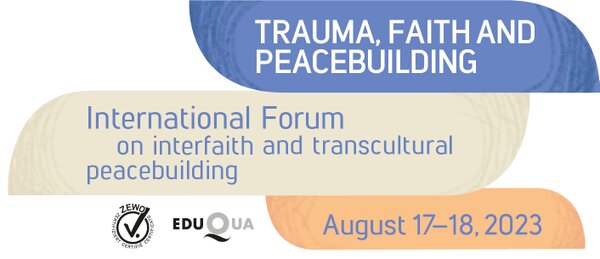
mission 21 "Many of Mission 21's partner churches and organizations live in crisis and conflict regions. Therefore, interreligious and transcultural peacebuilding is a main topic of cooperation. The forum will feature presentations and discussions on how peace initiatives from different contexts can support each other. The topic of the two-day online meeting is the role of religion and spirituality in dealing with trauma. You will also have the opportunity to meet experts from our partner churches and organizations in Nigeria, Bolivia and Indonesia in workshops exchange." The event is open to the public and free of charge.

Swiss Society of Tropical Medicine and Parasitology (SSTMP) "On 7/8 September 2023, the annual scientific meeting and general assembly of the Swiss Society of Tropical Medicine and Parasitology - SSTMP – will take place at the Swiss Tropical and Public Health Institute (Swiss TPH) in Allschwil (Basel). Our exciting programme is headlined by two outstanding keynote speakers: Robin B. Gasser (University of Melbourne, Australia), presenting about "Understanding of parasites at the molecular level to discover new interventions" and Amaya Bustinduy (London School of Hygiene and Tropical Medicine, UK), presenting about "100 years of neglect in paediatric and genital schistosomiasis"."

Université de Genève "L’Institut de santé globale de l’Université de Genève propose une formation en cours d’emploi, la Maîtrise d’études avancées en Santé publique (MAS-SP), qui pourrait être d’intérêt pour les professionnels de la santé. Ce master, pionnier en Suisse depuis sa première édition en 1990 est une formation en cours d’emploi, qui se déroule en français, sur 3 ans. Il est destiné aux professionnels de la santé et des secteurs connexes souhaitant devenir experts et leaders en santé publique et permet d’acquérir des connaissances et des compétences dans des domaines multiples. Pour plus de renseignements, nous vous prions de bien vouloir consulter le site internet : https://www.unige.ch/formcont/cours/mas-sante-publique ou adresser un courriel à Madame Manuela La Greca : info-mas-sp@unige.ch
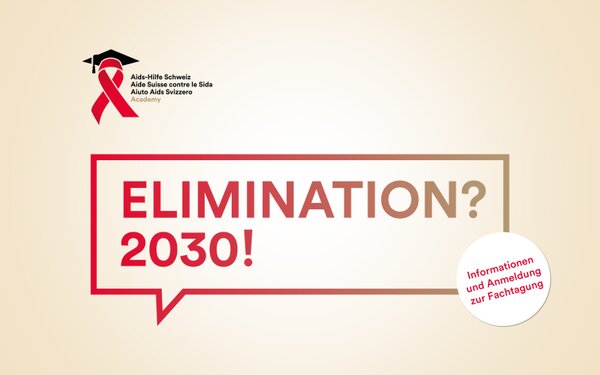
Aids-Hilfe Schweiz "Die Weltgemeinschaft und unser Verband haben grosse Ziele: HIV bis 2030 eliminieren. Hepatitis bis 2030 eliminieren. Syphilis, Gonorrhö & Co. reduzieren. Die Fachtagung der Aids-Hilfe Schweiz diskutiert: Wie bringen wir diese Visionen ins Leben? Die interdisziplinäre Fachtagung richtet sich an Fachpersonen, Vertreter:innen von Community Organisationen und weitere Interessierte."
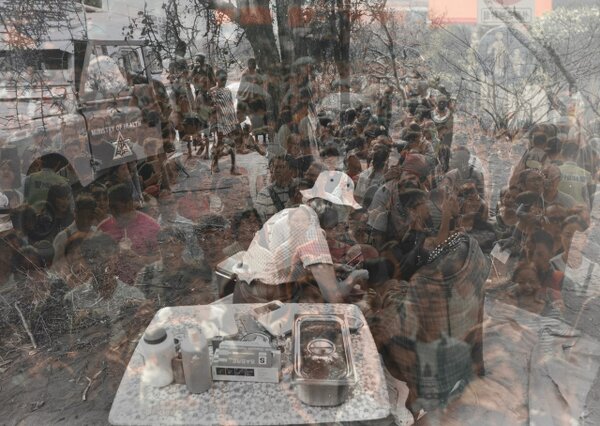
Medicus Mundi Schweiz Medicus Mundi Schweiz (MMS) feiert dieses Jahr sein 50-jähriges Bestehen. Aus diesem Anlass wird MMS am Jubiläumssymposium der Frage nachgehen, wie sich die Arbeit und die Rolle der Zivilgesellschaften in der internationalen Gesundheitszusammenarbeit und in der globalen Gesundheit verändert und weiterentwickelt haben.